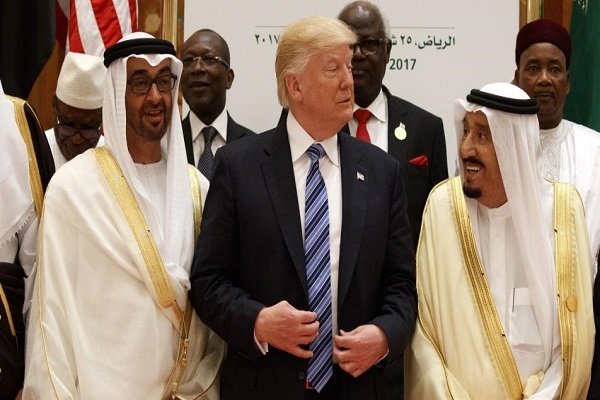Iran today is a trans-regional power: Yemeni Expert

TEHRAN - Recently, American and Arab sources have been reporting about U.S. President Donald Trump's efforts to forge a new political and security coalition with some Persian Gulf states (Saudi Arabia, UAE and Bahrain), Egypt and Jordan to counter Iran. The White House wants to strengthen collaboration with these countries in the field of missile defense, military training, counter-terrorism and other issues, such as supporting regional economic and diplomatic relations.
This is a plan that, according to White House officials, is a version of NATO or an Arab NATO. The Trump administration hopes the coalition, which has been called tentatively the Middle East Strategic Alliance (MESA), will be examined and unveiled at a meeting in Washington DC in October.
MESA seeks to fend off the influence of Iran in the Middle East. By drawing on long-established NATO, the security treaty idea was introduced by Saudi officials before Trump’s trip to Riyadh a year ago.
Taleb al-Hassani, a Yemeni writer and analyst said in an interview with Mehr News correspondent, on the formation of this coalition against Iran: “Washington, announcing the formation of Arab-American NATO against Iran, once again revealed the U.S. defeat in the Middle East, and it looks like an Arab coalition against Yemen, too.”
“In fact, the countries that joined this anti-Iranian coalition are unprepared, even if their garrisons are full of military forces, unless these countries allow the Zionist regime to use their territory. But the question here is whether Israel is daring to do so?”
He added: “These Persian Gulf countries themselves also know that they are being driven by the U.S. and are not prepared to enter a regional war; a war that does not even guarantee any results. The member states of this new coalition are heterogeneous, and we should remember the coalitions that were formed in the past and have not been successful; those were militarily defeated in Syria, Iraq and Yemen and politically in Lebanon. Announcing a new coalition is laughable. To all of this one should add the fall of the Saudi coalition in Yemen.”
Al-Hassani states: “Countries with political weight like Malaysia, Turkey and Pakistan will avoid any coalition in which Saudi Arabia is present. Saudi Arabia tries to include these countries in its alliances, but now the conditions are different, and the fate of all these military alliances is failure. On the contrary, we should understand that the country will be invaded by Iran. Iran is a country that has now become a trans-national power and has a strong military along with the support of its people.”
This Yemeni analyst emphasized: “It's clear that the coalition is linked to America's strategy against Iran and the strengthening of sanctions against the country, as well as efforts to isolate Tehran and weaken its economy and stimulate domestic protests. The strategy seems to be unsuccessful. Iran has passed these sanctions and lived with it and has a psychological readiness to break the blockade. More importantly, Iran has succeeded in the region despite devastating policies over three decades of media, political and military efforts against the country. Iran has resisted at all levels.”
He continued: “Trump looks to the Persian Gulf Arab states as the rich countries that can respond to their needs in the region. U.S. policy in this regard is based on three issues; encouraging Arab countries to build strong relations with the Zionist regime, persuade these countries towards hostility against Iran and getting huge amounts of money from the so-called U.S support. With these policies, the Saudi economy has still been declining every year, and the country will be isolated if it continues to follow the U.S.”
Al-Hassani emphasized that the U.S. should review the defeat of the Zionist regime during the 2006 invasion of Lebanon and successive violations of the Gaza Strip, and then the Yemeni war, which turned into a nightmare for the invaders, and after three and a half years Riyadh and Abu Dhabi have become insecure capitals. If these countries become a battlefield with Iran, the outcome will be a catastrophic conflict for these countries, he claims.
Leave a Comment